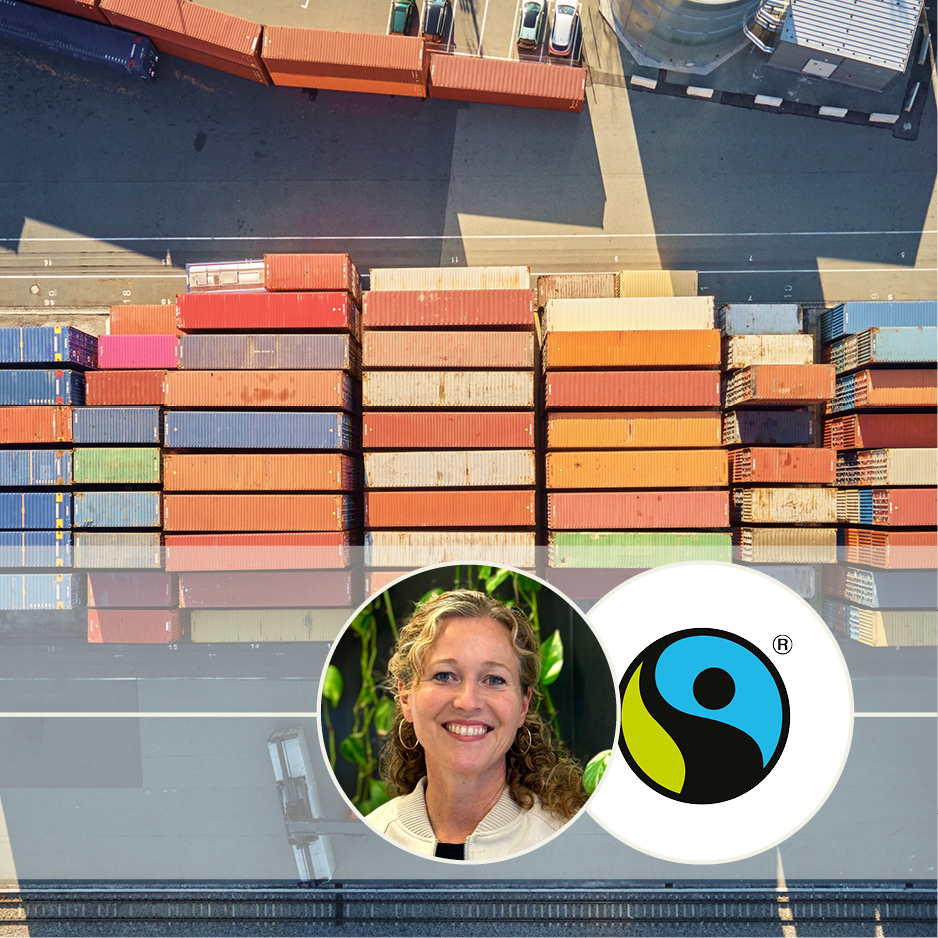This article is part of our recent publication, Towards a responsible value chain – The role of investors and the CSDDD.
Fairtrade is an international social movement and a certification scheme aimed at changing the way trade works through better prices, decent working conditions, and a fairer deal for farmers and workers in agrifood supply chains. Unique elements in the standards are the Fairtrade minimum price and on top of that the premium price. The minimum price functions as a safety net for producers to ensure basic costs for sustainable production are met. The premium price provides additional funds for farmers and/or workers to invest as they see beneficial. This contributes to the livelihoods of farmers and workers. Moreover, by providing local support, Fairtrade is a visible and practical partner to farmers and workers. The support also helps them prepare for upcoming European legislation, invest in addressing climate change, and stay commercially relevant. This strengthens their position in global markets and promotes social and environmental sustainability in value chains.
Working towards responsible value chains
There is nothing wrong with profit, but not at the cost of exploitation. Everyone in the value chain should be able to earn a decent living from the work they do. The word ‘value’ in value chains must become a reality. All parties involved in a supply chain should add and receive value for delivering their part. The most important aspect is that the social and environmental costs are not placed solely at the beginning of the chain but are fairly distributed throughout. This is a balancing act. Therefore, transparency is key. At Fairtrade, we aim to know where each part of the process occurred, what costs are involved, what values are transferred, and under what conditions. Transparency is crucial in all parts of the trading, and these steps need to be certified and audited.
Sustainable purchasing practices are a critical component of responsible value chains. The following example illustrates this. In the banana sector, retailers aim to contribute to living wages for workers on banana plantations. To do so, sustainable purchasing practices are needed. This can, for example, be assured through long-term contracts, long-term commitments, and the payment of an additional amount to close the wage gaps, such as the Fairtrade living income reference price. We encourage buyers to consider multi-annual contracts so that plantation owners and workers know what to expect and stand to gain a stronger position.
It is important to ask companies to study their current purchasing practices. Could it be that they directly or indirectly contribute to human rights violations and/or environmental damage in their supply chains? In a constructive dialogue, these practices can be discussed and directed towards more sustainable purchasing practices. This way, companies increasingly meet their due diligence obligations.
Current approach to sustainability
At Fairtrade, we notice that while companies recognise the need for more sustainable practices, they sometimes still struggle to embrace their responsibilities, as it may interfere with the way they have been doing business for many years. Although frontrunners are genuinely trying to make a difference, there are signs that others are trying to shift part of their due diligence responsibility onto other companies in the supply chain.
Companies are discussing and negotiating sustainability criteria with their suppliers, which is a positive step. However, the question remains: what are they themselves contributing to ensure those sustainability goals are achievable throughout their supply chain? Without meaningful changes in purchasing practices, there is substantial risk of farmers bearing the social and environmental costs – and the cost of sustainability ambitions at the other end of the supply chain. Companies should enable sustainable production, via their purchasing practices, and acknowledge that this comes with a price.
The impact of legislation such as the CSDDD
Legislation such as the CSDDD could benefit value chains, though positive impact will depend on the implementation of the directive. Overall, Fairtrade warmly welcomes this legal framework. We hope that the Dutch implementation of this law will benefit workers and farmers via effective company due diligence processes. However, we are careful not to be too optimistic. There’s still a risk that companies see this legislation as merely a tick-box exercise to develop a due diligence process without impactful implementation. The danger is that they may limit themselves to write sustainability requirements in supplier contracts without any real value transfer or improvement in their own purchasing practices. This practice of (partly) outsourcing responsibilities may unfortunately lead to farmers paying for the implementation of the CSDDD without being compensated for it. It is important that the new legislation leads to improvements in the value chain where most needed and adds value to the livelihoods of workers and farmers.
Now that the CSDDD is approved, we also encourage investors to engage with companies on their due diligence obligations and to be aware of the potential adverse environmental and human rights impacts of their activities and the necessity to act on them via their purchasing practices.
Ambition is needed to progress on the topic
Initiatives such as Platform Living Wage Financials (PLWF) use engagement as an important tool to encourage companies to take next steps in enabling living wages in their supply chains. This should lead to concrete sustainability improvements in the supply chain. Very interesting in this regard was ASN Impact Investors pulling out of clothing companies due to lack of progress after many years of engagement. This escalation strategy will hopefully result in a more powerful form of engagement, moving company perspective on sustainability from a ‘nice-to-have’ to a ‘must-have’.
Pressure like this, and from the CSDDD, will reveal that most impactful sustainable practices do not take place where only a box needs to be ticked, but in joint supply chain efforts from parties and stakeholders – and where parties realise that a sustainable supply chain is a value chain, where value distribution is key for long-term sustainability and profitability. It is about sharing both the responsibilities and the rewards.

